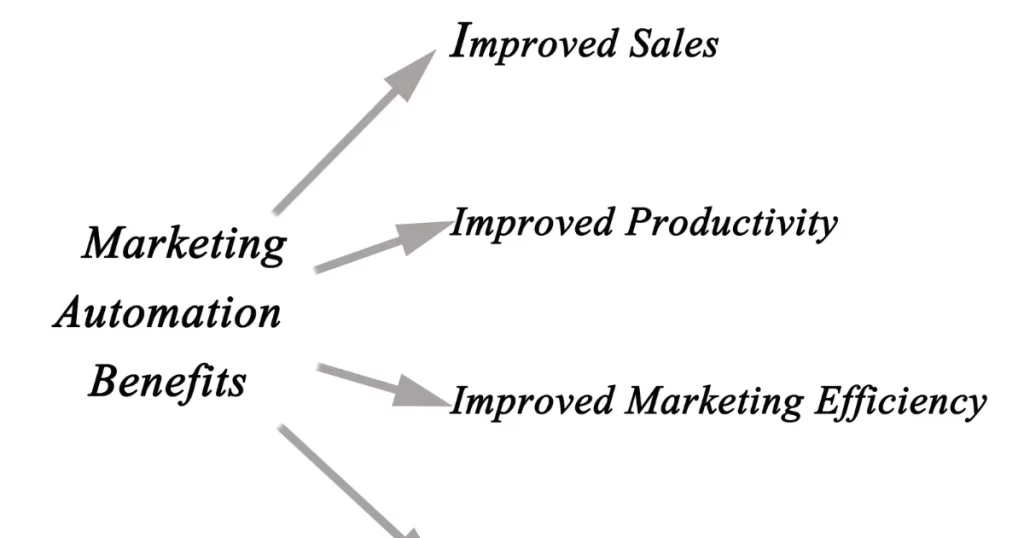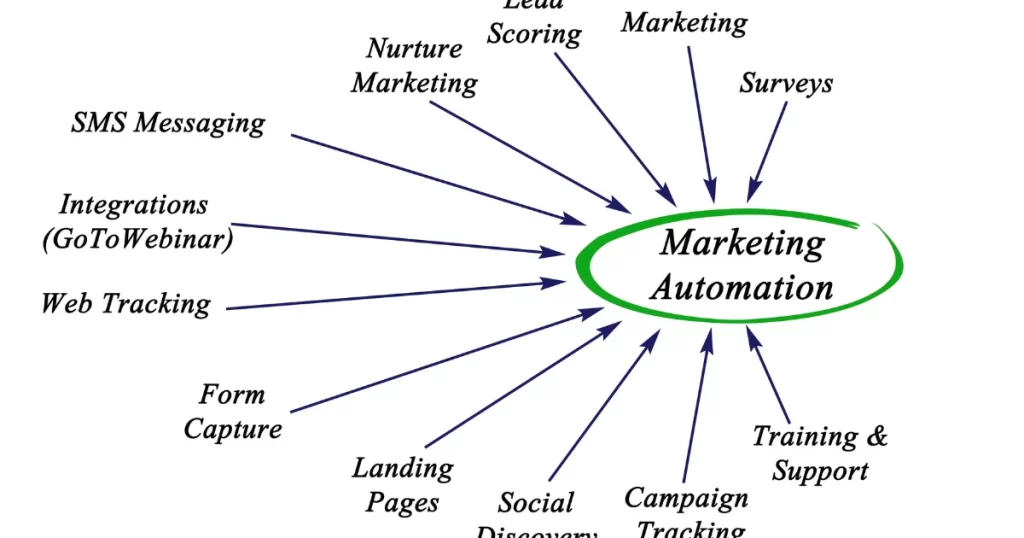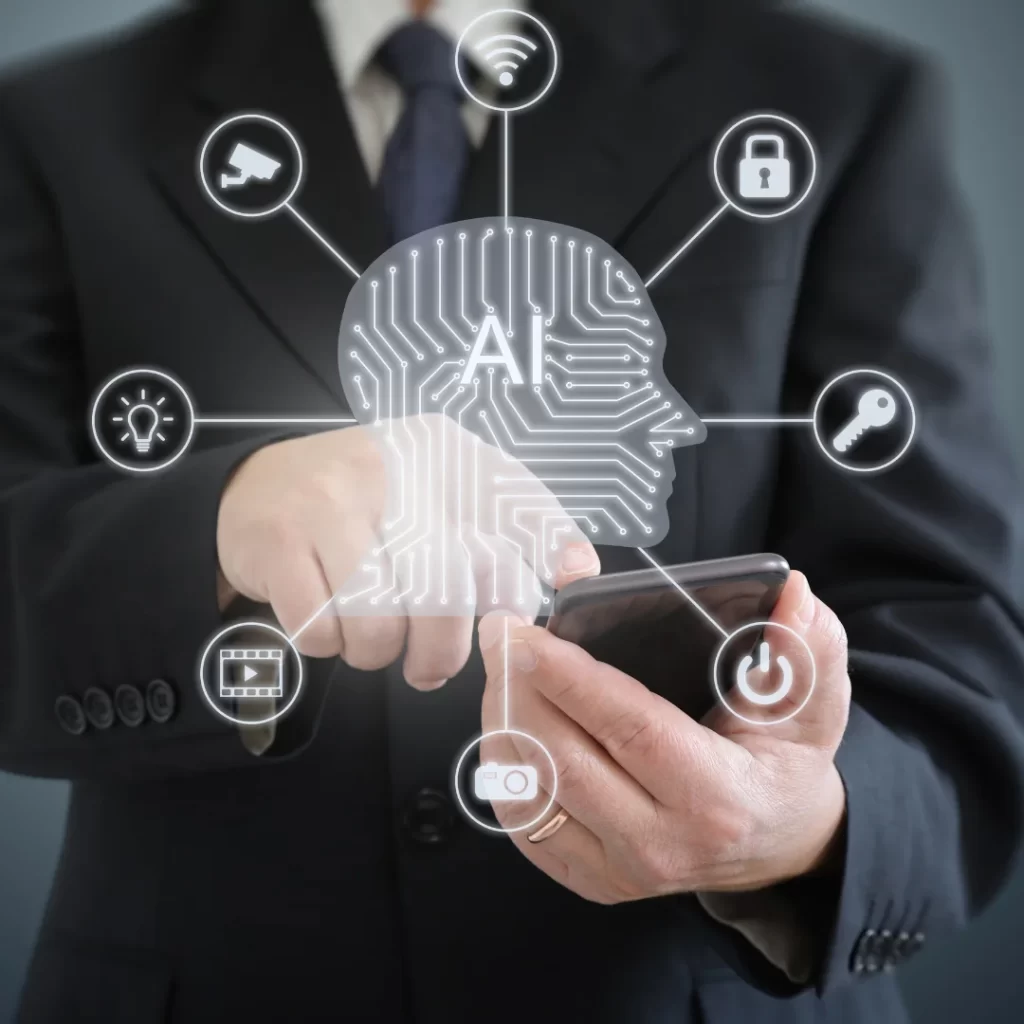Marketing automation isn’t just a fancy buzzword—it’s the key to saving startups from drowning in endless emails, customer interactions, and soul-crushing spreadsheets. Imagine having an army of AI minions working tirelessly to handle the repetitive stuff while you focus on, you know, actually running a business.
In this article, we’ll explore the Best 10 AI Tools For Marketing Automation For Startups 2025 that will streamline your marketing efforts, boost engagement, and maybe, just maybe, save your sanity.
The Role of AI in Marketing Automation

Let’s be honest—marketing without AI today is like trying to hunt with a slingshot while your competitors are using laser-guided missiles. It’s inefficient, exhausting, and will probably leave you wondering why your ad campaigns are hemorrhaging money. That’s where marketing automation powered by AI steps in like the superhero your startup never knew it needed.
Imagine a tireless, data-driven assistant that doesn’t sleep, doesn’t complain, and—unlike human employees—doesn’t require an annual holiday bonus. That’s AI for you. It takes on the tedious, mind-numbing marketing tasks that used to demand entire teams, crunches mountains of data in nanoseconds, and personalizes campaigns with almost creepy precision.
But let’s break this down properly—because AI isn’t just about working smarter; it’s about winning at marketing without burning out.
Why Should You Care About AI in Marketing?
It’s a fair question. Why should you, the ambitious startup founder or weary marketing manager, give AI the keys to your marketing kingdom? Because unless you enjoy throwing money into the abyss of inefficient campaigns, AI-driven marketing automation is the upgrade you need. Here’s how it transforms the game:
Sales Improvement: The AI-Driven Lead Whisperer

Picture this: Your sales team is drowning in leads, but most of them are as useful as a screen door on a submarine. The problem? Manual follow-ups are slow, inconsistent, and prone to human error. AI-powered marketing automation eliminates these headaches.
How? By ensuring that every potential customer is nurtured at the right time, in the right way, with the right message.
- AI scores leads based on behavior, engagement, and past interactions, so your team doesn’t waste time chasing cold leads.
- Automated follow-ups keep your startup top-of-mind without annoying prospects (nobody likes spam, but everyone loves a well-timed nudge).
- AI-driven chatbots and virtual assistants can instantly answer inquiries, reducing response time and improving customer satisfaction.
The result? Higher conversion rates, more closed deals, and a sales pipeline that actually moves instead of gathering dust.
Example: Instead of sending the same generic email to every lead, AI can determine whether someone visited your pricing page twice, ignored your last email, or downloaded your whitepaper. Then, it triggers a highly personalized follow-up—something a human would never have the time (or patience) to do at scale.
Let’s compare:
| Traditional Sales Approach | AI-Powered Sales Approach |
|---|---|
| Cold calls and email blasts to a generic list. | AI prioritizes high-intent leads based on behavior. |
| Sales reps manually follow up when they remember. | AI automates perfectly timed follow-ups. |
| Leads drop off due to slow responses. | AI chatbots engage instantly, keeping leads warm. |
| Sales teams waste time on uninterested prospects. | AI filters out low-quality leads. |
Which one sounds better? Exactly.
Customer Satisfaction: Making Customers Feel Like VIPs (Without Hiring a Concierge Team)
You know what customers hate? Feeling like just another number. You know what AI does better than humans? Personalization at scale.
AI-driven marketing automation ensures that:
- Customers receive messages that actually matter to them, not generic blasts.
- Responses are instant, whether through AI chatbots, automated emails, or smart recommendations.
- Brands understand individual preferences without making customers jump through hoops.
Let’s say a customer abandoned their cart on your website. Instead of them vanishing into the void, AI kicks into action:
- First, it analyzes their browsing behavior.
- Then, it sends a perfectly timed email or SMS with a subtle nudge (“Hey, still thinking about that purchase? Here’s a 10% discount.”)
- If they ignore it? AI retargets them with a social media ad featuring exactly what they were about to buy.
And just like that, you recover a lost sale.
Real-world impact:
| Without AI | With AI |
|---|---|
| Generic, untargeted email blasts that annoy customers. | Hyper-personalized messages based on customer behavior. |
| Slow response times to inquiries. | Instant, AI-driven customer service that resolves issues fast. |
| Customers feel ignored after signing up. | AI-powered drip campaigns keep them engaged. |
Customers don’t care if they’re talking to a human or AI—as long as they feel valued. AI makes sure they do.
Cost-Effectiveness: Less Spending, More Results (Your CFO Will Weep Tears of Joy)
Marketing budgets are tight, especially for startups. Hiring a full-fledged marketing team? Expensive. Training them? Even more expensive. AI-driven marketing automation slashes costs by replacing manual labor with data-driven precision.
Here’s how:
- Reduces labor costs: AI can handle email marketing, lead scoring, customer segmentation, social media scheduling, and analytics—jobs that would normally require multiple hires.
- Minimizes wasted ad spend: AI pinpoints which campaigns work and which are sucking your budget dry, so you stop throwing money at ads that don’t convert.
- Boosts ROI with precision targeting: Instead of spraying and praying, AI ensures your message reaches the right people, at the right time, in the right way.
Let’s break it down:
| Expense | Traditional Marketing | AI-Powered Marketing Automation |
|---|---|---|
| Hiring Costs | Multiple full-time employees needed. | AI automates tasks, reducing labor costs. |
| Ad Spend Waste | Hit-or-miss targeting drains budgets. | AI optimizes ads based on data. |
| Customer Retention | Hard to maintain without dedicated teams. | AI keeps engagement high effortlessly. |
| Response Time | Slower, leading to lost opportunities. | AI-driven chatbots engage instantly. |
For startups watching every dollar, AI isn’t a luxury—it’s a necessity.
Time Savings & Error Reduction: Say Goodbye to Marketing Mishaps
Let’s face it—manual marketing is riddled with human errors. Whether it’s sending an email with the wrong discount code or blasting an ad campaign to the wrong audience, mistakes cost money.
AI fixes this by:
- Automating repetitive tasks (no more manually segmenting email lists).
- Eliminating human forgetfulness (AI doesn’t “forget” to follow up).
- Ensuring precision targeting (AI knows exactly who to target and when).
Example of AI catching a mistake: Say you’re running a holiday promo. A tired marketer accidentally sends an email with last year’s dates—a disaster in the making. AI catches the error before it’s sent, preventing an embarrassing (and costly) blunder.
| Without AI | With AI |
|---|---|
| Typos, errors, and misfires in campaigns. | AI ensures every campaign is accurate. |
| Delayed responses lose leads. | AI automates follow-ups instantly. |
| Hours wasted on manual data analysis. | AI analyzes data in seconds. |
More speed. Fewer errors. More results.
Top 10 AI Tools for Marketing Automation in 2025

1. HubSpot
Best for: Startups that want an all-in-one inbound marketing suite
- Features include lead scoring, analytics, CRM, and email marketing integration.
- Ideal for startups looking to scale without juggling multiple platforms.
- Pros: Easy to use, great support, powerful automation tools.
- Cons: Pricing can be steep for smaller startups.
2. Brevo (formerly Sendinblue)
Best for: Startups looking for affordable email and SMS automation
- Features multichannel workflows, transactional email capabilities, and advanced segmentation.
- Pros: Cost-effective, strong email and SMS marketing integration.
- Cons: Limited third-party integrations compared to bigger players.
3. ActiveCampaign
Best for: Startups needing deep CRM integration and automation mapping
- Features dynamic content, advanced automation maps, and AI-driven email personalization.
- Pros: Excellent automation, strong CRM capabilities, great customer support.
- Cons: Learning curve can be steep.
4. Omnisend
Best for: E-commerce startups that need pre-built automation workflows
- Features include advanced segmentation, A/B testing, and SMS integration.
- Pros: Excellent for e-commerce, easy-to-use automation templates.
- Cons: Limited beyond e-commerce use cases.
5. Marketo Engage (Adobe)
Best for: Larger startups with sophisticated marketing needs
- Features include lead management, account-based marketing, and predictive analytics.
- Pros: Robust features for data-driven marketers.
- Cons: Overkill for small startups, pricey.
6. Zapier (Workflow Integration)
Best for: Connecting all your marketing tools without hiring a developer
- Features include app integrations, workflow automation, and multi-step zaps.
- Pros: Automates repetitive tasks, connects thousands of apps.
- Cons: Can become expensive as automation needs grow.
7. Jasper.ai (Content Generation)
Best for: AI-driven content marketing and copywriting
- Features AI-generated blog posts, ad copy, and email campaigns.
- Pros: Saves tons of time, great for content-heavy startups.
- Cons: Requires human editing to maintain brand voice.
8. Synthesia (Video Creation)
Best for: Startups wanting AI-generated videos without a film crew
- Features include AI-generated human-like avatars, voiceovers, and text-to-video.
- Pros: Scales video content creation effortlessly.
- Cons: Limited customization compared to live recordings.
9. Mixpanel (User Behavior Tracking)
Best for: Data-driven startups that love tracking every user action
- Features deep analytics, cohort analysis, and behavioral insights.
- Pros: Incredible for tracking engagement and optimizing campaigns.
- Cons: Can be overwhelming without a data team.
10. Beki AI (SEO Tools)
Best for: Startups that want AI-powered SEO strategies
- Features AI-driven keyword research, internal link-building automation, and ranking insights.
- Pros: Saves hours of SEO work, helps content rank faster.
- Cons: Needs additional human strategy for best results.
Emerging Trends in Marketing Automation (2025)
- Predictive Analytics: AI tools will get even smarter, forecasting trends before they happen.
- Multichannel Engagement: AI will unify email, SMS, social media, and more into seamless customer journeys.
- AI-Powered Personalization: Expect hyper-tailored campaigns based on user behavior in real time.
Choosing the Right Marketing Automation Tool for Your Startup
Before pulling out your credit card, ask yourself:
- What’s my budget? Some tools are startup-friendly, others will eat your marketing budget alive.
- How scalable is it? Will this tool grow with your company, or will you need to switch in six months?
- Does it integrate with my existing tools? Compatibility is key—no one likes a siloed mess.
- Is there customer support? When (not if) things go wrong, you’ll want someone to call.
Conclusion
Investing in the right AI-powered Marketing Automation tools can mean the difference between scaling efficiently or burning out trying to do it all manually. Whether you need email automation, AI-generated content, or deep analytics, there’s a tool on this list ready to help.
Choose wisely, automate ruthlessly, and get back to doing what you do best—running your startup without losing your mind.

